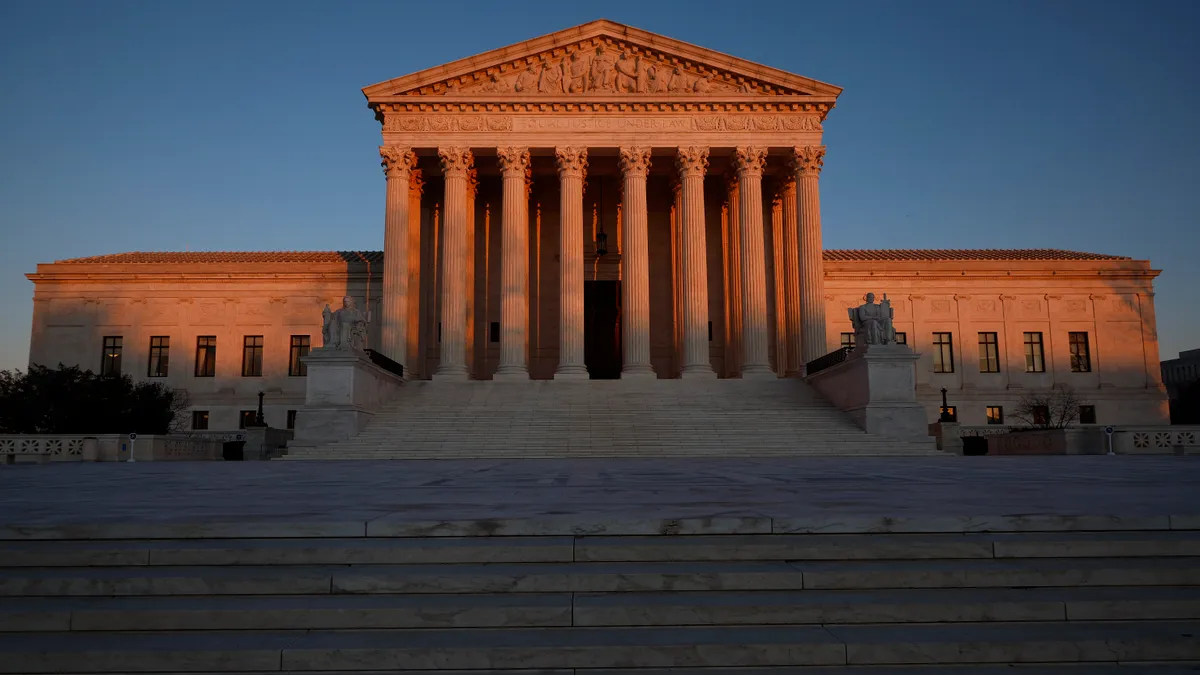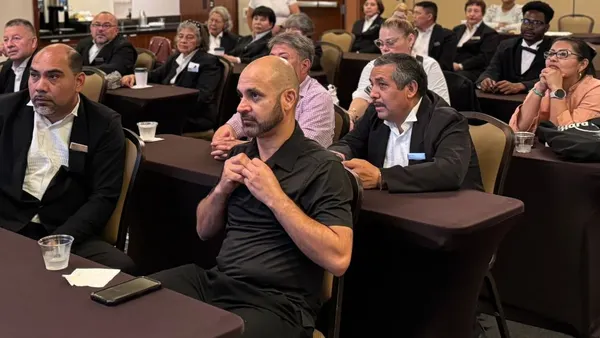The U.S. Supreme Court dealt a blow to federal agencies when it overturned the Chevron doctrine on June 28.
In a 6-3 vote, the court overruled a 1984 decision that required courts nationwide to give deference to federal agencies interpretations of statutes. Now that deference is no longer required.
The ruling is essentially “overturning 40 years of Administrative Law history in terms of how the courts are going to approach agency guidance,” Nancy Barnes, who leads the labor and employment practice at law firm Thompson Hine, told Hotel Dive.
And the decision impacts industries nationwide — hospitality among them ̦— that rely on federal agencies for guidance, particularly when it comes to employment law.
Industry players, however, are divided on the impact. While business groups have praised the decision, labor organizations have warned that it could erode workers’ rights.
Impacts of the law
The federal agencies that most frequently interpret statutes affecting the hospitality industry include the National Labor Relations Board, the Equal Opportunity Employment Commission, the Department of Labor and the Occupational Safety and Health Administration, according to Barnes.
Now that individual courts no longer need to defer to their guidance, “I think you’re going to see a lot of conflicts nationwide,” she said, noting that some courts will issue injunctions “that may or may not have a nationwide impact.”
“What’s likely to happen, I think, is that you’re going to have a patchwork of situations where particular issues are enjoined in one state, or in a couple of circuits, and then courts in other circuits will say, ‘No, no, we think that that's a reasonable interpretation and that is enforceable,’” Barnes added.
This is especially likely to be the case for statutes that were already hotly debated, she noted. Those statutes include the EEOC’s Pregnant Worker Fairness Act, the DOL’s independent contractor rule and the NLRB’s joint employer rule, which the American Hotel & Lodging Association has called “job killing.”
The potential variability of interpretations of these rules is “going to be a headache for employers who have a national footprint,” Barnes said.
Industry reactions
The Asian American Hotel Owners Association, however, said the Chevron doctrine’s overturning could give hotel owners greater stability.
In a statement applauding the Supreme Court’s decision, AAHOA President and CEO Laura Lee Blake said, "Overturning the Chevron doctrine reinstates the judiciary's role in interpreting laws, ensuring that federal agencies cannot unilaterally impose regulations without proper checks and balances.
“This change brings much-needed clarity and stability, enabling hotel owners to navigate the regulatory landscape with greater confidence and certainty," she added.
Meanwhile AFL-CIO, the nation’s largest federation of unions, urged in an amicus brief filed in September the Supreme Court to leave the Chevron doctrine alone. AFL-CIO’s member unions include Unite Here, the largest hospitality union in the U.S.
“The AFL-CIO believes that Chevron is both a constitutionally permissible and practically necessary part of a functional system of government in the 21st century,” the organization wrote. “We file this brief so that the federal government can continue effectively to protect American employees and employers, elaborate their respective rights, and improve their well-being.”
Unite Here and AHLA did not respond to a Hotel Dive request for comment.










